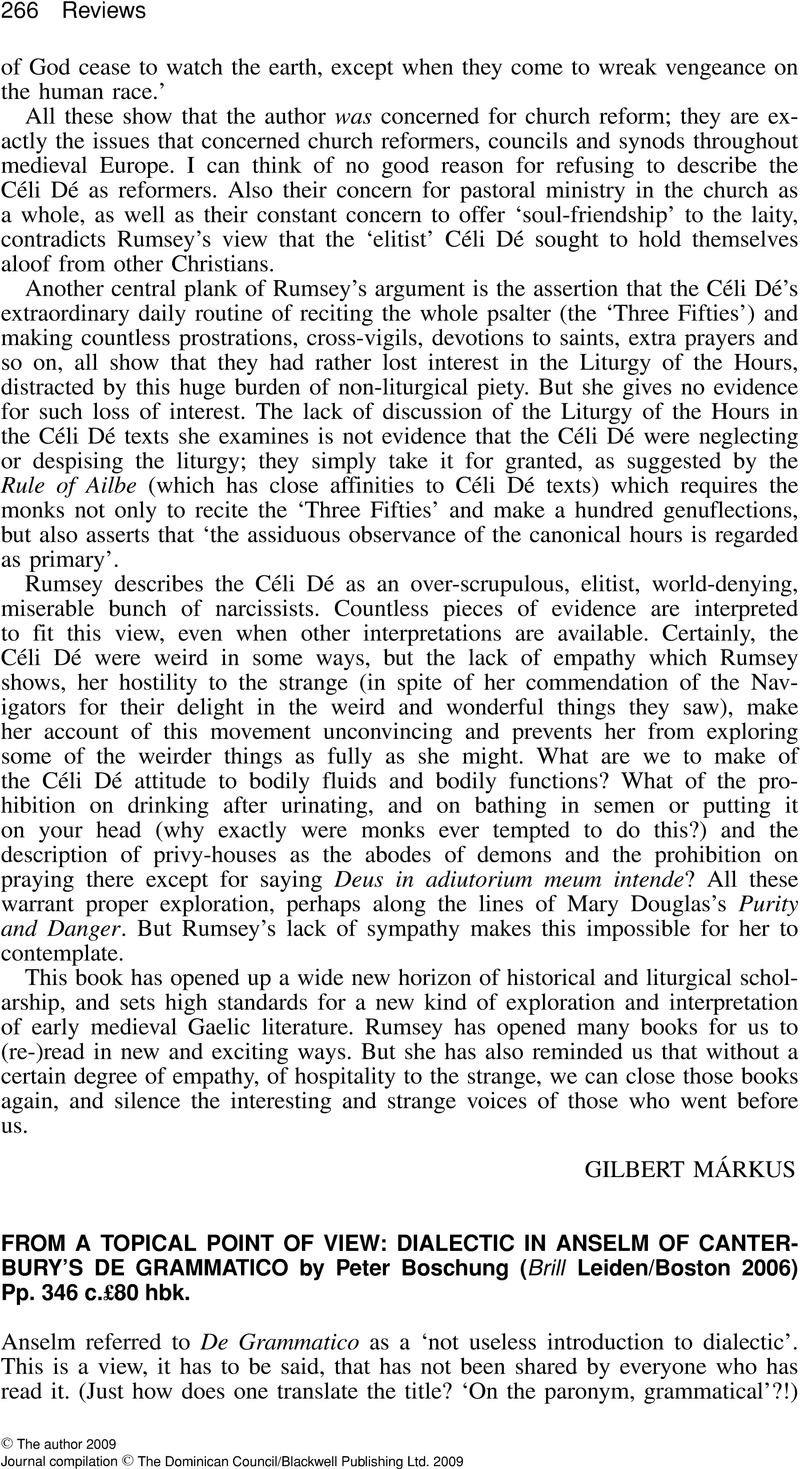No CrossRef data available.
Article contents
From a Topical Point of View: Dialectic in Anselm of Canterbury's de Grammatico by Peter Boschung (Brill Leiden/Boston 2006) Pp. 346 c.£80 hbk.
Review products
From a Topical Point of View: Dialectic in Anselm of Canterbury's de Grammatico by Peter Boschung (Brill Leiden/Boston 2006) Pp. 346 c.£80 hbk.
Published online by Cambridge University Press: 01 January 2024
Abstract
An abstract is not available for this content so a preview has been provided. Please use the Get access link above for information on how to access this content.

- Type
- Reviews
- Information
- Copyright
- © The author 2009. Journal compilation © The Dominican Council/Blackwell Publishing Ltd. 2009


